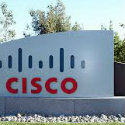Cisco to Buy Security Expert for $635M
Takeover to help Cisco address growing security threats as more devices become Internet-enabled.

Cisco is to pay $635 million in cash for security business OpenDNS in anticipation of soaring demand for technologies that will protect networks against cyber attacks.
The IP networks giant expects security threats to grow as more devices become Internet-enabled and says the technology developed by OpenDNS will add "broad visibility" and "threat intelligence" to its own security solutions.
Based in San Francisco, with about 300 employees, OpenDNS has developed a cloud platform that helps IT departments to identify and respond to cyber attacks targeting the domain name system (DNS).
The company claims that about 65 million people are currently using its technology, with customers ranging from Fortune 500 companies to small businesses.
"We've averaged more than 20% growth every quarter for the last ten consecutive quarters," said David Ulevitch, the CEO of OpenDNS, in a letter to employees about the deal with Cisco Systems Inc. (Nasdaq: CSCO). "We're closing $1 million annual recurring revenue deals, and we've added more than 2,000 paying customers this year alone."
By combining the OpenDNS platform with its own security services, Cisco thinks it will be able to provide a more complete security offering, allowing customers to guard against attacks and deal with them when they happen.
"As more people, processes, data and things become connected, opportunities for security breaches and malicious threats grow exponentially when away from secure enterprise networks," said Hilton Romanski, Cisco's chief technology and strategy officer, in a statement. "OpenDNS has a strong team with deep security expertise and key technology that complements Cisco's security vision."
The takeover of OpenDNS is the latest in a series of security moves by Cisco, which has been strengthening its product portfolio through takeovers as well as tie-ups with security specialists.
"Cisco is building up a formidable artillery in network security, lining up OpenDNS among other high-profile acquisitions like Sourcefire, less high-profile acquisitions such as Cognitive Security and partnership agreements with the likes of Arbor Networks," says Patrick Donegan, a chief analyst at Heavy Reading.
"Heavy Reading surveys consistently show that the DNS is among the most vulnerable parts of the enterprise or service provider infrastructure to DDoS [distributed denial of service] attacks and multi-vector exfiltration attacks -- in fact, it's often the most vulnerable," he adds. (See SDN & NFV Amplify Security Threat – Allot.)
Want to know more about cloud services? Check out our dedicated cloud services content channel here on Light Reading.
Cisco plans to roll OpenDNS into its security business group, led by David Goeckeler, and expects to close the deal between August and October.
But the news has stoked some concern that Cisco will look to change the OpenDNS approach and increase pricing.
OpenDNS has been offering services on a subscription basis -- using a software-as-a-service model -- and was quick to reassure existing customers that their "license and service will remain intact for the duration of the subscription period" in a section on its website about the forthcoming transaction.
"The free service will continue to operate," added the company. "We wouldn't have entered into this agreement if we believed our free service would be in jeopardy."
Further seeking to justify the sale to Cisco, OpenDNS said it would be able to innovate and improve its services as a part of Cisco, "where talent, technologies and resources can be amplified."
What impact the transaction will have on jobs within OpenDNS -- or, indeed, Cisco's security business group -- remains unclear, although Ulevitch appeared eager to address related concerns in his letter to employees. "Our jobs will be the same as they were yesterday," he said.
— Iain Morris, 

 , News Editor, Light Reading
, News Editor, Light Reading
About the Author(s)
You May Also Like












